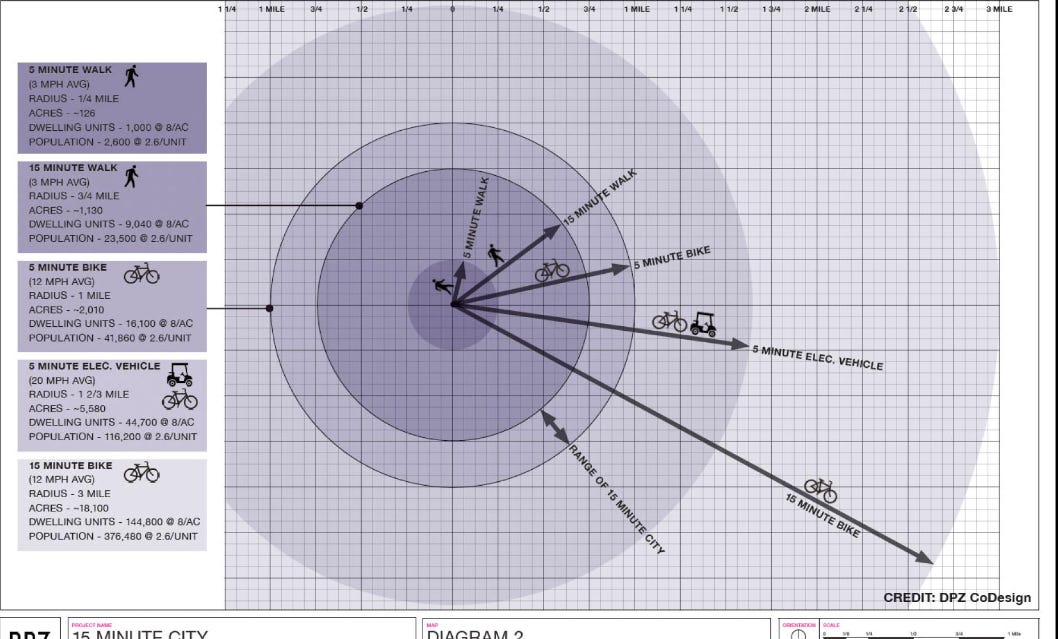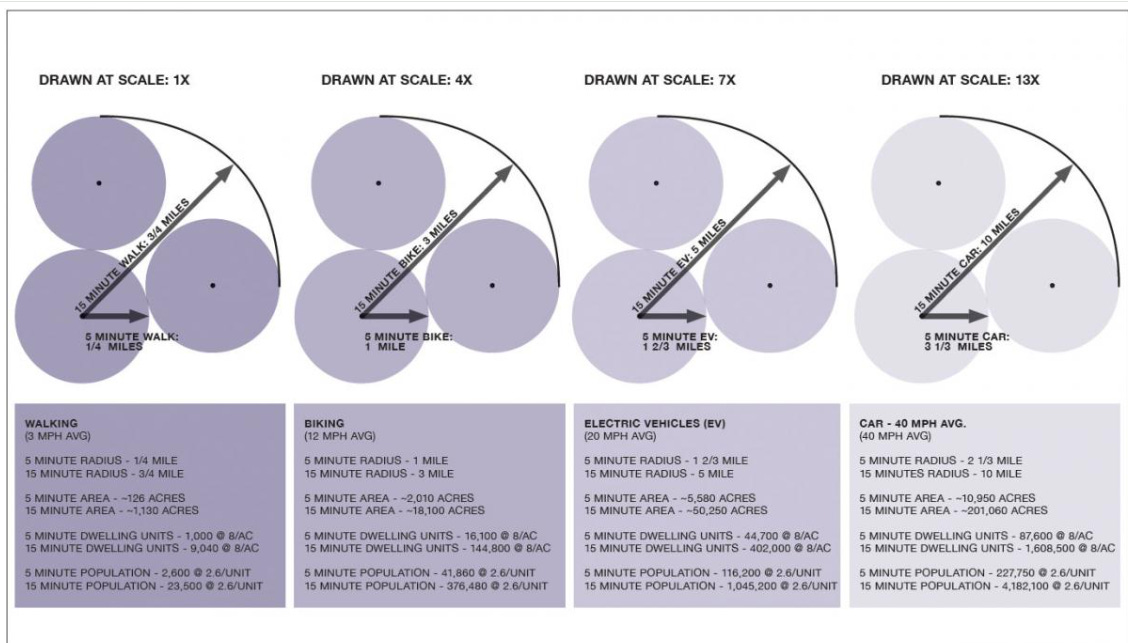15 MINUTE CITY is pushed down rather than demanded. Is that the creep-factor. Like a 15 minute city stalker concept. Our municipal government is getting close and none of asked for it.
the 15 minute city is creepy because it is pushed down with great investment and systematic universal planning.
We are asking for.
ya schools with education rather than porn instruction manuals;
bail laws that jail offenders;
no more SAFE INJECTION SITES;
immigration policies that match housing. not match the ideal densification and diversity (aka representatives of people from every possible place- can they suck and blow on colonialism any more? ) and is the reserve system of the Indian Act being implemented in new micro city block systems?
a decent economy
the possibility of the American dream (remember that- merit based attainment)
INSTEAD we get cameras bylaws regulations changes to official plans debts and the ubiquitous roll out. and the push for alternatives proteins.
“The “15-minute city” may be defined as an ideal geography where most human needs and many desires are located within a travel distance of 15 minutes. While automobiles may be accommodated in the 15-minute city, they cannot determine its scale or urban form. Based on automobile travel, most metropolitan areas may be 15-minute cities. “
https://www.cnu.org/publicsquare/2021/02/08/defining-15-minute-city
Instead, the 15-minute city is defined by its ability to provide access to all human needs by walking or bicycling for a quarter hour or less. Transit should be provided within the 15-minute city, but cannot accurately define its scale—for reasons that will be explained later.
Confusingly, some cities use the term “15-minute neighborhood” instead of “15-minute city,” and the two phrases are similar in general intention—but “city” is more accurate. The area implied inside the walking and biking sheds is much larger than a single neighborhood.
Implications and attainability
Most urban areas built prior to the overwhelming proliferation of cars have the structure of a 15-minute city—so restoring the goal may be relatively easy, depending on how much damage was done due to urban renewal, in-city highways, disinvestment, and loss of population. For more recent cities and suburban areas, the task will be more difficult—as cars aren’t subject to spatial discipline. When an urban area achieves the 15-minute city goal by organic evolution or legal inducement, several positive implications follow:
It is socioeconomically equitable—those without a car could easily access all their needs. This requirement would be a logical extension of current building accessibility requirements.
The area is small enough that measuring diversity, in balance, produces a useful indicator. In larger geographic areas, diversity has less meaning because many human needs could be too distant to be easily accessible anyway.
The need for transportation is minimized—and therefore the reduction in fuel mitigates global warming.
Human-powered transportation, which improves health and well-being, is promoted. The benefits are greater than one compact neighborhood alone could provide.
The convenient location of services, accessible by multiple modes, saves time and improves quality of life.
The 15-minute city is a slippery ideal depending on:
The list of needs and desires to be provided within the shed (e.g., ranging from an elementary school or a clinic to a university or a hospital.)
The means of transport, which will determine the size of the shed.
What is assumed to be the average housing density, which determines the population within the shed that is able to support services.
https://www.cnu.org/publicsquare/2021/02/08/defining-15-minute-city
I wish it made sense. If it weren’t a ubiquitous push simultaneously everywhere.
But it is and that’s just creepy. We aren’t asking for it it is bing made to deliver like a one size fits all coffin.
Remember we win by moving information through new modes.
send your concerns to mayors and councillors
BIAs and Chamber of Commerce’s
School board trustees and teachers
faith communities
pharmacists
etc.
I like sending this. I recommend you tell them to look at the document paying attention to the zero cars by 2030 and the data presented in chapter 6. Send it systematically to the people you know and ask them to fan it into their communities. I am pushing this because I have a hunch it is persuasive. It reads like the technocrats final solution to mankind.
The same thing for your concerns about the Pandemic Treaty or Bill C-293. Spill the information systematically at the grass roots levels.





Personally, I prefer the term, ghetto. Maybe this will awaken the sensory personality types who trust authority and don't read between the lines, let alone, read between the lies. There is a war on mobility, which is designed to confine everyone within a highly surveilled existence.
That's it, exactly. It's being pushed, definitely not discussed and ultra definitely not asked for. So "they" - governments - know. Most people don't. Knowledge is exactly what "they" don't want us to have. It's one of the big things we're providing.